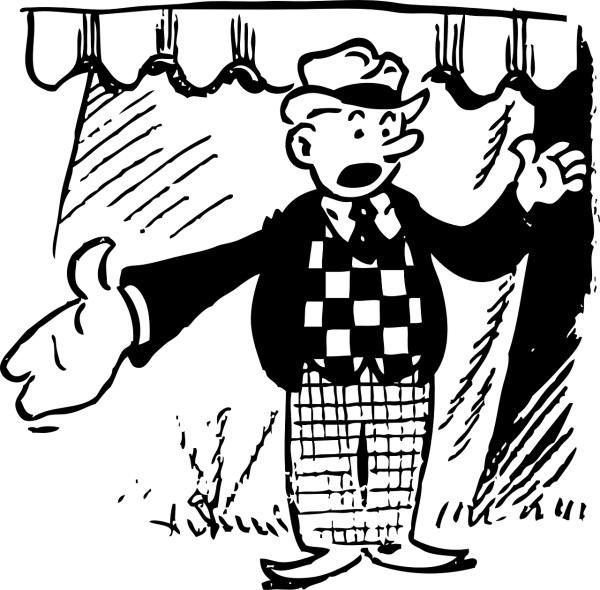“My job, I feel, on the show is to be a cheerleader for the audience…I actually do personally believe in the items I talk about on the show. I recognize that oftentimes they don't have the scientific muster to pass as fact." Mehmet Oz, MD before the US Senate
Dr. Oz doesn’t present fake science, but he can offer up “hyped” science – “information that is taken out of context, exaggerated, and over-generalized to attract public attention.” That is often the problem with many COVID-19 studies, and it is why our societal response to “hyped” science is essential for us to understand. Stories with a grain of truth are more believable and often require more explanation than the original misdirection.
Several sources may counter hype, a news article in the media, the research by other authoritative individuals, and for products, online reviews, or product discussion. A new research study sought to determine how these four channels “mitigate or amplify” hype news. With his advocacy of over-the-counter weight loss products, Dr. Oz provides the grist for the researchers’ mill. Dr. Oz has recommended ten ingredients over the years [1]. Separate research published in the British Medical Journal suggested that 46% of Dr. Oz’s advice had some rationale; the rest had no or contradicting evidence.
The research looked at our behavioral response after Dr. Oz mentioned each of these ingredients on his show. Every ingredient received media coverage. The data on products comes from Amazon – roughly 6100 weight loss products and 150,000 consumer-generated reviews across the Internet. News articles are from LexisNexis. Medical websites, where you might expect some push-back against misdirected medical advice, generated few, if any, reports on Oz-mentioned products. For each of those ten ingredients, the researchers identified
- A median of 158 news articles.
- A median of 235 peer-reviewed studies.
- Amazon produced roughly seven customer reviews
- Reddit and Quora produced a median of 205 discussions.
“…the purpose of Dr. Oz’s hype news is to induce a visceral, emotional reaction from the viewer.”
To measure the extent of those reactions, the researchers applied text analysis to identify words that might convey a positive or negative emotion and sentiment. [2] They looked for “bias correction” - instances where the writer corrected an underlying error or bias about an ingredient. For example, “Nope. Did not work for me. In fact, I've gained more of a gut!.” Finally, they measured how many articles appeared over time, the “density” of reporting.
Through online product reviews, consumers provided the greatest correction from “Dr. Oz’s misleading claims.” But let’s focus on news and research papers, the media where we would hope that misleading, erroneous information was identified and corrected.
- Research articles showed no discernable Oz effect – no flurry of studies in response to an Oz mention. Those peer-reviewed studies were devoid of emotion and sentiment, something we would expect from objective rather than advocacy-based science. Research lives apart from the news, and no specific “debunking” of his claims are made.
- Like Google searches and sales, news sources responded to those Oz mentions, providing more coverage of the featured ingredient. But less than 1% of those news articles specifically mention Dr. Oz. More importantly, few disputed or corrected the misinformation. While none of the articles were emotionally laden, many carried a positive sentiment [2].
- The combination of increased coverage, written in a positive light with no correction, resulted in news articles amplifying rather than correcting the underlying message.
“Broadly, our findings show that online health information can lead consumers to draw misleading conclusions. Results of preliminary or small sample studies can be directly disseminated by endorsing doctors. Rather than critically examining these endorsements, credible media is not only a mere transmitter of this information but may even become an amplifier of the information.”
The Why
The researchers offer several reasons. First, debunking those partial truths, investigative journalism is expensive. I would hasten to point out that in many cases, that expense is one of time, not always readily available to meet deadlines. Sourcing and reporting on the Oz effect for this article took most of the day. Second, separating the kernel of fact from its surrounding misleading context requires more words; it is not amenable to memes or doom scrolling. Third, of course, is the competition for eyeballs on the Internet.
Much of the concern about fake and hyped news is directed at social media. But this week, much of the mainstream media, like the NY Times, MSNBC, Scientific American, or AP, has raised concerns over Dr. Oz’s dubious claims because he is now running for Senate in Pennsylvania. This study demonstrates that despite the current coverage, those legitimate news channels have and do play a role in amplifying scientific mistruths. In the attention economy, “All the news that’s fit to print” may refer more to reads, likes, and retweets, than to dispelling misleading and erroneous information.
It is hard to dispel the little lies, the erroneous conclusions based on a lack of context. That bespoke work is hard to produce on a deadline. We should hold our media, not just social media, to a higher standard.
[1] Garcinia cambogia, green coffee bean, raspberry ketone, saffron extract, forskolin, safflower oil, moringa, glucomannan, chitosan, 7-keto.
[2] The researchers distinguished emotion and sentiment in the strength of the word choices, where emotion was a more substantial feeling.
Source: Hype News Diffusion and Risk of Misinformation: The Oz Effect in Healthcare Journal of Marketing Research DOI: 10.1177/00222437211044472




